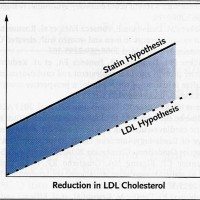The ongoing saga of quackademic medicine continues. The University of Toronto School of Public Health has been caught teaching utter nonsense to its students. Even worse, when called out on this dereliction of their academic responsibility, they defended it. Unfortunately, it is all too clear how something like this can happen.
The department was teaching an alternative medicine course at U of T’s Scarborough campus. The course was taught by Beth Landau-Halpern who is a homeopath Scott has discussed before, and who also happens to be the wife of the dean of that campus (it’s hard to imagine this was not a factor). Landau-Halpern should never, in my opinion, be anywhere near the classroom of a legitimate university.
The fact that she is a homeopath is enough to disqualify her to teach any health topic. On her website she boldly claims that “homeopathy works,” even though the evidence shows that homeopathic potions are indistinguishable from placebo. She also specializes in treating children with ADHD and autism. She advertises her training as a CEASE practitioner – CEASE stands for:
Complete Elimination of Autistic Spectrum Expression. Step by step all causative factors (vaccines, regular medication, environmental toxic exposures, effects of illness, etc.) are detoxified with the homeopathically prepared, that is diluted and potentized substances that caused the autism.
It is clear she is operating under a non-scientific narrative, which is typical of practitioners of alternative medicine.
Many universities, however, have been sold a bill of goods. They are told that “alternative medicine” is about holistic, patient-centered care, that it is “evidence-based” and that patients are using it, and students are interested in it, so it is appropriate to teach it. Of course, university deans are likely not to know much about alternative medicine, and therefore may be inclined to buy this line or propaganda. Further, if they agree to teach such a course they are often happy to turn the details over to an “expert,” which translates into an alternative medicine practitioner.
Worse still, there is often very little oversight over the contents of the curriculum. The practitioner is free, once inside the gates, to teach utter pseudoscientific nonsense. This is exactly what appears to have happened at U of T, with the alternative medicine practitioner being the wife of the dean as an added bonus.
What sometimes happens is that a real scientist gets wind of what is being taught in the course and decides to do something about it. This does not happen often enough, but it does occasionally happen. In this case letters were written to the deans complaining about two aspects of the course in particular: anti-vaccine propaganda, and the abuse of quantum mechanics to explain how magic works. There were physicists among the letter writers, who were particularly offended at the misuse of quantum mechanics.
The material on vaccines included:
The required reading and viewing material for that lecture included a two-hour long interview with Andrew Wakefield, the disgraced former British surgeon who popularized the false idea vaccines are linked to autism and other chronic illness. Other course material included a video promoting the idea vaccines are unsafe; a video titled Vaccine’s Safety: A Crime Against Humanity; and a book that claims vaccines have not reduced rates of disease or increased lifespan.
The course material also had this to say about quantum mechanics:
We will delve into a quantum physics’ understanding of disease and alternative medicine to provide a scientific hypothesis of how these modalities may work. Quantum physics is a branch of physics that understands the interrelationship between matter and energy. This science offers clear explanations as to why homeopathic remedies with seemingly no chemical trace of the original substance are able to resolve chronic diseases, why acupuncture can offer patients enough pain relief to undergo surgery without anesthesia, why meditation alone can, in some instances, reduce the size of cancerous tumors.
Of course, quantum mechanics has zero explanatory power regarding homeopathy and acupuncture, and homeopathy and acupuncture don’t, in fact, work. This is so-called “quantum woo” that we have been dealing with for years. It is a classic example of pseudoscience. The logic is nothing more than this: quantum mechanics is weird, homeopathy (or ESP or name your favorite pseudoscience) is weird, therefore homeopathy works by quantum mechanics.
The university responds
More interesting than the mere fact that a university is teaching pseudoscience (which unfortunately is no longer shocking) is the response of the deans when confronted with their failure. In their report they argue that it is not their job to evaluate course material. That is the job of the department or program. They therefore limited their review to the process used by the department, not the course material itself (although they do then go on to comment on this). This is a reasonable position, for ordinary concerns, but is not a reasonable position when the accusations are this severe. You don’t need special expertise that only exists at the departmental level to see that this course is flagrant pseudoscience and lacks even basic scholarly quality control.
Further, the university did not address the concerns about the abuse of quantum mechanics at all. They only addressed the concerns about the inclusion of anti-vaccine propaganda. They gave no reason for ignoring half the complaint.
Their comment on the anti-vaccine propaganda was the most shocking and deplorable aspect of their response. They essentially say that the students are taught the real science of vaccines in their other courses, this course is an elective for seniors who are expected to be able to critically assess the content, and the purpose of this course was to present the “other side,” therefore:
As a result, I do not find that the instructor’s approach in this class has been, or would have reasonably been perceived to be unbalanced, in the sense that it deviated from a presentation of material that, in context, would enable critical analysis, and inquiry. Thus, from an academic pedagogy perspective, I do not find that there has been sufficient deviation from the range of normal approaches to warrant concerns.
This is nothing more than the ‘false balance” defense. This is identical to defending the teaching of creationism at a university – teaching creationism uncritically as if it were a real scientific theory and challenge to evolution – on the grounds that the students learn evolution in their biology course and should be able to critically analyze the content, therefore it is balanced. This logic could be used to defend the teaching of astrology alongside astronomy, geocentrism alongside heliocentrism, and alchemy alongside chemistry.
Conclusion
Universities need a wake-up call. Deans need to understand that it is not academically acceptable to teach pseudoscience, errors of fact, bad scholarship, invalid logic, and dangerous nonsense in their schools on the justification that it is “balanced,” that they are “teaching the controversy“, or that they are just respecting academic freedom. These strategies should all sound familiar, because they have been used for decades by creationists to attack the teaching of evolution and to introduce creationist pseudoscience into curricula at every level of education.
The deans who wrote the U of T response must be completely tone deaf to these creationist strategies – perhaps because they are Canadian and it is not as much of an issue there.
Further, scientists and scholars in universities can no longer justify remaining “shruggies” – we all need to take an active interest in basic quality control at our own institutions. I am not talking about micro-managing course content or interfering with other departments. For most courses the usual process of content creation and oversight is adequate. But these types of course are not usual. They represent a deviation from the typical material being taught at university, and they deserve special attention and oversight.
Optimally, courses promoting pseudoscience would not be taught at any university. If a university wants to teach about alternative medicine, or creationism, or astrology, they should teach it from a critical point of view. This should not be confused with promoting pseudoscientific propaganda, however.
It should be obvious that teaching nonsense as if it were legitimate does a disservice to the students, even if the students don’t perceive it themselves. Scholarly quality control does not happen at the student level.
Further, giving access to a university classroom to pseudoscientists compromises the academic integrity of the institution. It also legitimizes the pseudoscientist and the pseudoscience. Landau-Halpern can now claim she is an instructor at the University of Toronto, and that homeopathy is taught there, therefore it must be legitimate.
The response of the University of Toronto to these complaints is scandalous. It is completely inadequate, it is clearly defensive, and they should be embarrassed.



